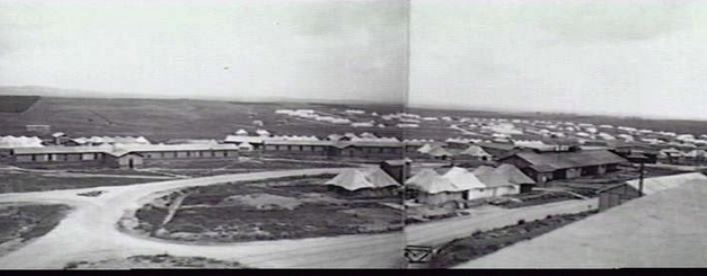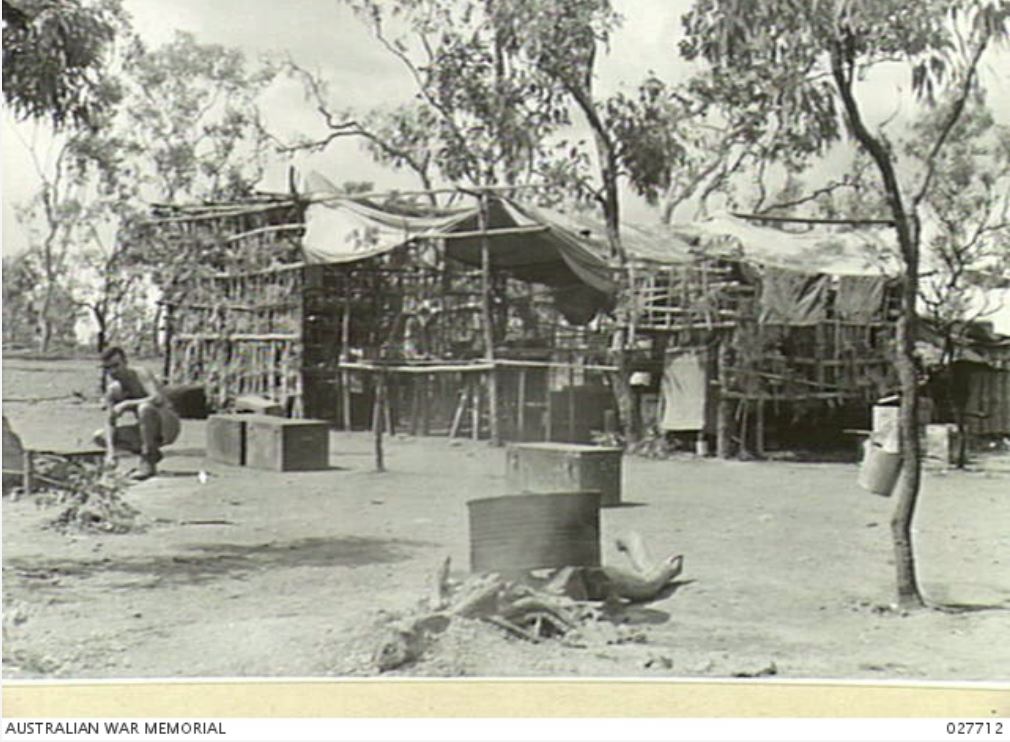2/7th Australian Field Ambulance
From Our Contribution
 The 2/7th In Palestine | |
 ] ]Oct 1942. The kitchen of "B" Company, 2/7th Australian Field Ambulance being used for the last time, a new kitchen having been erected. Photo AWM 027712 | |
Contents
Brief History
This unit was formed at Northam in June 1940 and after basic training left for the Middle East in September. When they arrived at Beit Jirja in October they found that they had been transferred to the 19th Infantry Brigade Group, which in turn was now a part of the 6th Australian Infantry Division. In November they moved to Burg el Arab, and when the Division moved into the Western Desert, A Company 2/7th Australian Field Ambulance were in support at the assault on Baria in January 1941. The whole unit participated in the assault on Tobruk before moving to Barce where they operated a hospital. In March 1941 they returned to Egypt to prepare for the move to Greece, where they arrived in early April.
In Greece they moved first to Brallos in support of the 19th Australian Infantry Brigade Group. With others they were forced back by the Germans to Megara by the end of April, with most being evacuated from the beaches and before being deposited on Crete. Here they established their Main Dressing Station at Vrysses, with Advanced Dressing Stations at Retimo and Georgioupolis. 'B' Company at Retimo was cut off and surrendered, but most of the rest of the unit were evacuated to Egypt from the beaches at Sfakia in late May.
In June 1941 the remnants of the unit reassembled at Khassa in Palestine where they rebuilt the unit before returning to Australia in early 1942. The 2/7th Australian Field Ambulance gathered at Mt Lofty in South Australia after leave. Sent to Darwin, in June they moved south to 65 miles, the southern brigade area where they remained until July 1943 when they moved to Wondecla in Queensland.
With Australian troops replacing US troops in New Guinea, they were a part of the force sent to Aitape in November 1944 with orders to push south and capture Wewak. In December 1944 the 2/7th Australian Field Ambulance moved to Babiang; in January 1945 to Ulau; February to Suain, and in March to Matapau in March. Here they were relieved by the 2/1st Australian Field Ambulance. In April they operated a malaria hospital at But, and after the capture of Wewak they moved to Cape Wom in May 1945 where they remained for the rest of the war.
Unit Personnel
- Walter Roland Williams 30 Apr - 27 Jun 1945
- Arthur Henry Thompson 6 Oct 1941 - 12 May 1942
- Arthur Gordon Hubbard 16 Apr 1943 - 18 Sep 1944
Patients
Wondecla, Queensland
- Cornielius Harold (Con) Kerrison 28 Sep 1943
Babiang, New Guinea
- Cornielius Harold (Con) Kerrison 18 - 25 Dec 1944
Ulau. New Guinea
- William George Davis 22 Jun 1945
- Thomas Malarkey 25 Jan 1945
- Thomas John Walsh 26 Jan - 10 Feb 1945
- Walter Roland Williams 17 - 26 Jan 1945
Matapau, New Guinea
- George Victor Parkin 25 - 26 Mar 1945
- Alan Kirwan Donaldson 26 - 27 Mar 1945
Cape Wom, New Guinea
- Cornielius Harold (Con) Kerrison 15 - 23 May 1945
- Edward James (Jim) Lawrence 24 May - 1 Jun 1945
Individual Honours
- 1 x Officer of the Order of the British Empire
- 2 x British Empire Medal
- 2 x Military Medal
- 20 x Mentioned in Despatches
Notes
Content has come from The Unit Guide - Volume 4 - The Australian Army 1939-1945, page 4.085 & 4.086 - Graham R McKenzie-Smith - Big Sky Publishing - 2018